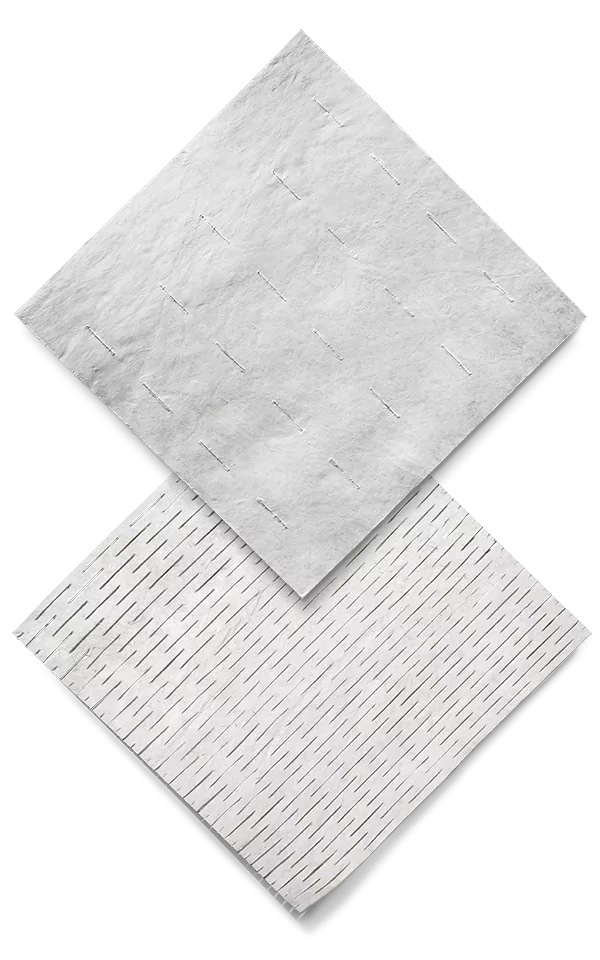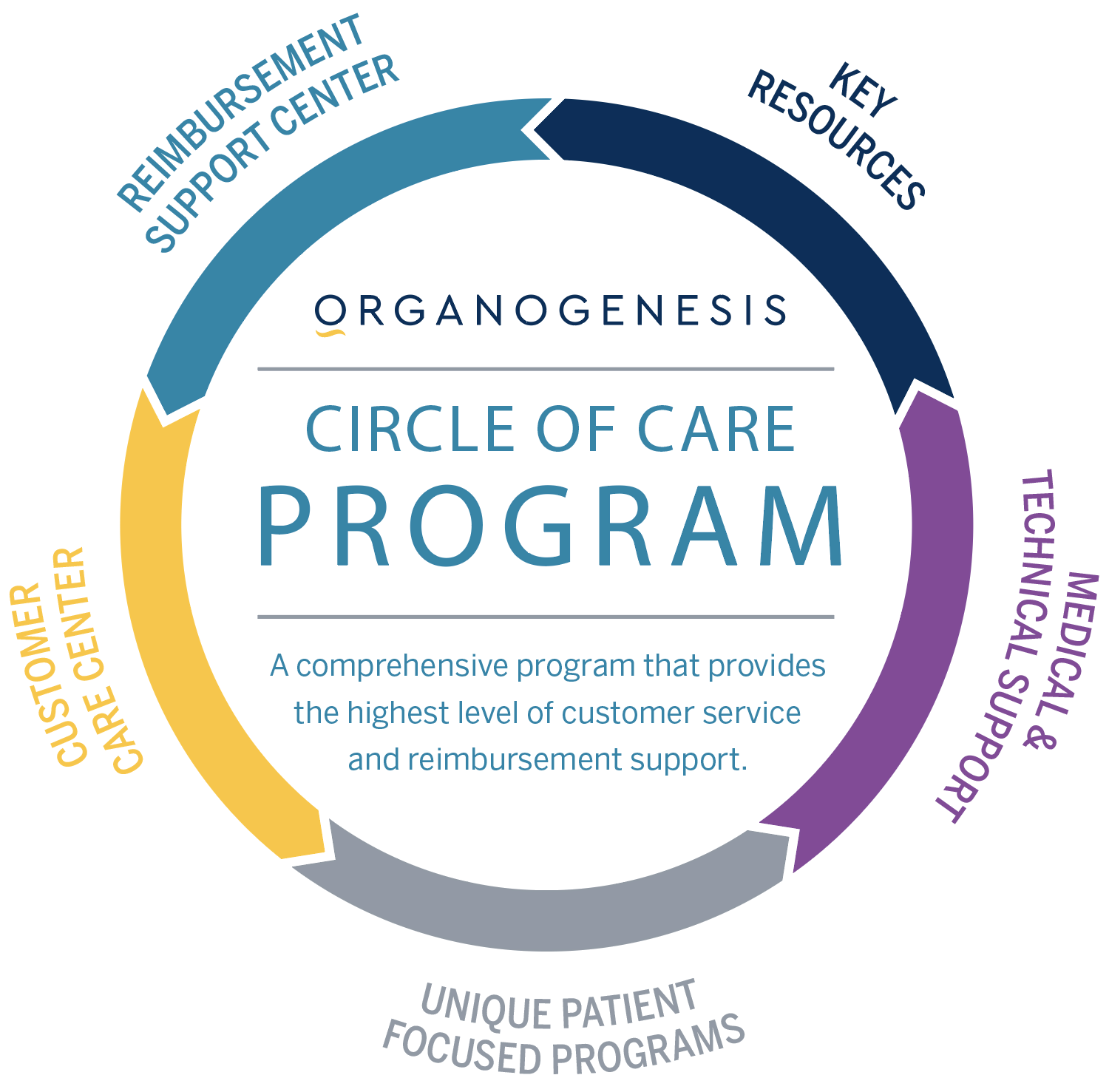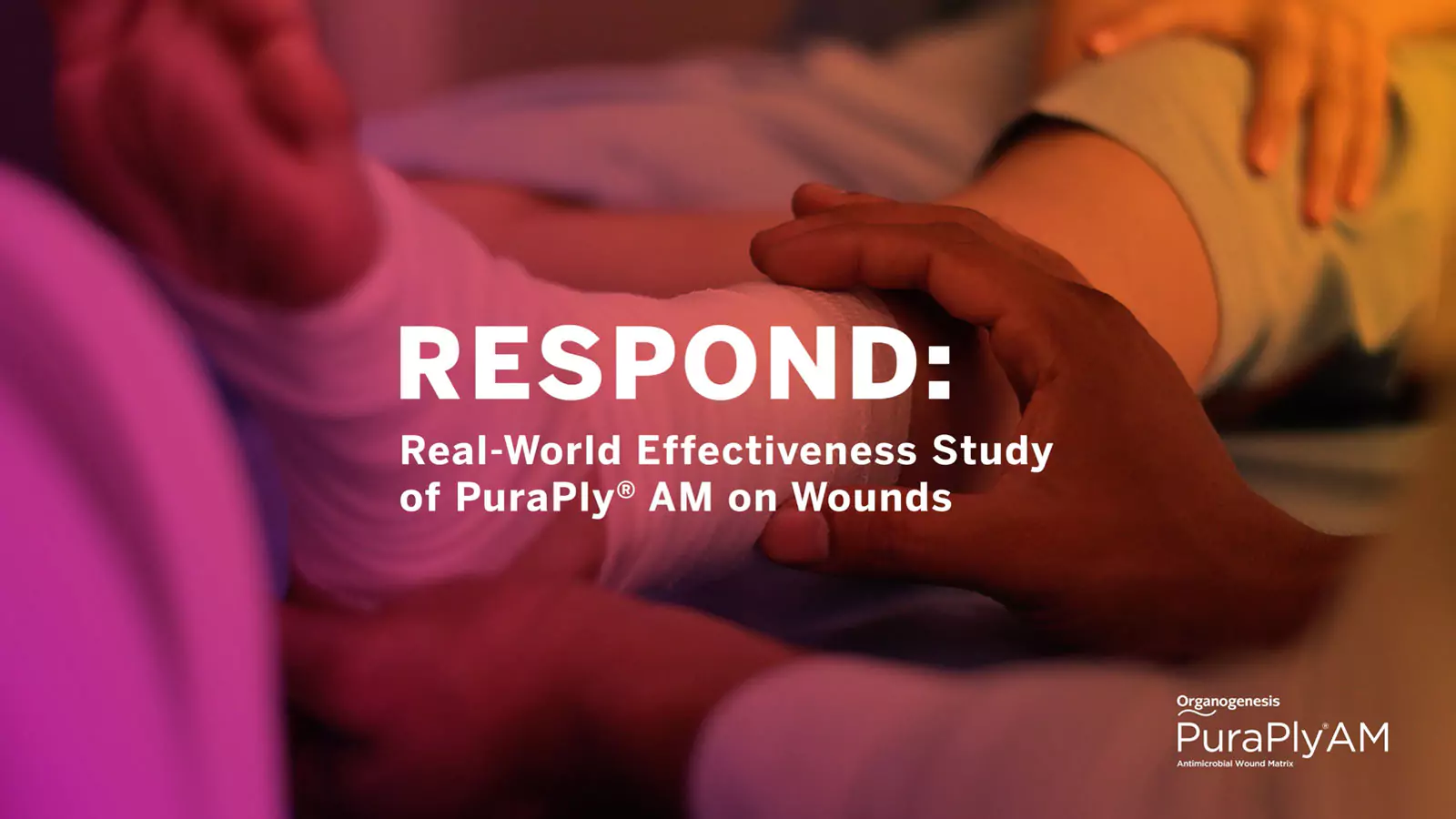

Native, cross-linked extracellular matrix scaffold + sustained antimicrobial effectiveness within the product to support wound healing and aid in granulation tissue formation.
TAKE CONTROL BEFORE BIOFILM RE-FORMS. USE PURAPLY®AM & PURAPLY®XT
Bioburden management with PuraPly®AM and PuraPly®XT helps you move wounds out of the inflammatory phase.

READY TO TAKE CONTROL OF
THE HEALING ENVIRONMENT?
Talk to an Organogenesis Tissue Regeneration Specialist about PuraPly®AM and PuraPly®XT
Contact usCONFIRMATION
OF CONTROL
Examine the scientific and real-world studies that demonstrate the effectiveness of PuraPly®AM and PuraPly®XT
SCIENTIFIC EVIDENCEREAL-WORLD EVIDENCE

Organogenesis' Circle of Care is a comprehensive program that provides the highest-quality customer service and reimbursement support. Our wide range of expertise includes:
VIEW ALL SERVICESPlease refer to the PuraPly AM Instructions for Use and PuraPly XT Instructions for Use for complete prescribing information.
REFERENCES:
- Bain MA, et al. J Comp Eff Res. 2020;9(10):691-703. doi:10.2217/cer-2020-0058
- Koullias GJ. Wounds. 2021;33(1):20-27.
- Hübner NO, et al. Skin Pharmacol Physiol. 2010;23(1 suppl):17-27.
- Oropallo AR. Plast Reconstr Surg Glob Open. 2019;7(1):e2047.
- Lintzeris D, et al. Wounds. 2018;30(3):72-78.
- Data on file. PDR-0001. Organogenesis Inc.
- Davis SC, et al. Int Wound J. 2021. Epub ahead of print. doi:10.1111/iwj.13600
